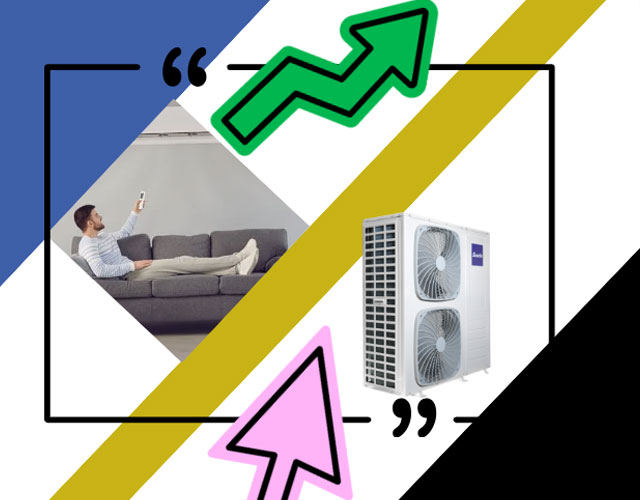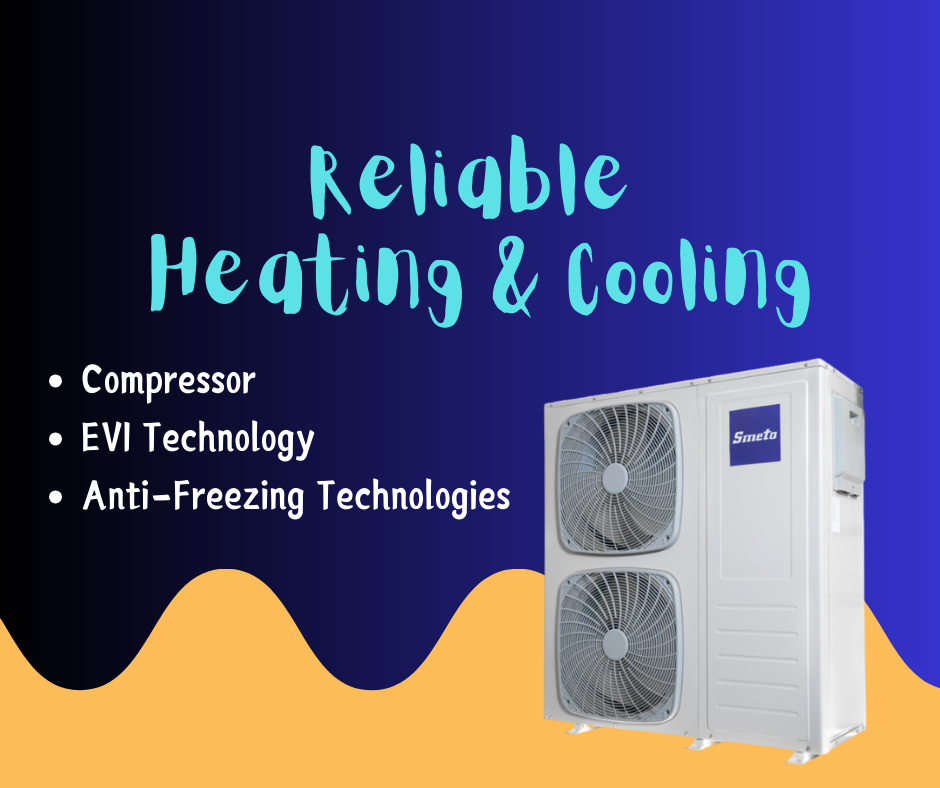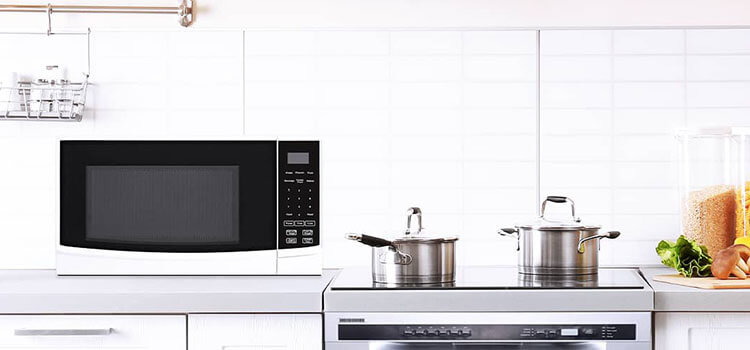As energy prices continue to soar, homeowners are searching for more sustainable and efficient ways to heat and cool their homes. Air conditioners and heat pumps are popular choices, each with its unique benefits. This article will compare their costs to help you make an informed decision for your home.

AC vs. Heat Pump: Which is Right for You?
Air conditioners operate on a relatively straightforward principle: they extract heat from your indoor space and expel it outdoors. This process involves the circulation of a refrigerant through a closed system. The refrigerant absorbs heat from your home’s air, becomes warmer, and is then compressed. The compressed refrigerant releases heat outside, effectively cooling your indoor environment.While primarily known for cooling, modern air conditioners often have heating capabilities. Some models are equipped to provide supplemental heat during colder months.
Heat pumps are specifically designed to both heat and cool your home. They use a reversible cycle to transfer heat between your indoor and outdoor environments. In heating mode, heat pumps extract heat from the outside air, even in cold temperatures, and transfer it indoors. This makes them a highly efficient option for year-round comfort.
Factors Affecting Electricity Costs
Now that we’ve explored the key differences between air conditioners and heat pumps, let’s delve into the factors that influence their electricity consumption. Understanding these factors will help you make an informed decision about which option is most suitable for your home and budget.
Several factors influence the electricity consumption of both air conditioners and heat pumps:
· Climate: Regions with extreme temperatures may require more frequent and intense heating or cooling, leading to higher energy bills.
· Home Size and Insulation: Well-insulated homes with efficient HVAC systems tend to consume less energy.
· Usage Patterns: Your personal habits, such as when you use your heating or cooling system and how often, significantly impact your electricity consumption.
Cost Comparison: Air Conditioner vs. Heat Pump
While the exact cost comparison will vary depending on your specific circumstances, heat pumps generally offer a more energy-efficient solution than traditional air conditioners. This translates to lower electricity bills over time.
Here’s a breakdown of the potential cost savings:
· Initial Investment: While air conditioners generally have a lower upfront cost, heat pumps tend to be more expensive to install. This is primarily due to the additional components and expertise required for their installation. However, the long-term energy savings offered by heat pumps can often offset the higher initial investment.
· Energy Efficiency: Heat pumps are renowned for their energy efficiency, particularly in regions with moderate climates. By extracting heat from the outside air, even in colder temperatures, heat pumps can significantly reduce your electricity bills compared to traditional air conditioners. This energy efficiency can result in substantial cost savings over time.
· Government Incentives: To encourage the adoption of energy-efficient technologies, many governments offer financial incentives such as tax credits, rebates, or grants for installing heat pumps. These incentives can help offset the upfront cost and make heat pumps even more affordable. It’s essential to research and explore the available incentives in your region to maximize your potential savings. Consulting with local energy efficiency programs or your utility company can provide valuable information on available incentives and eligibility requirements.
Replacement Costs and ROI
If you’re considering replacing an old air conditioner, the cost of installing a heat pump may seem higher initially. However, if your air conditioner is more than 12 years old, or you’re seeing higher energy bills or your air conditioner has been needing more and more repairs over time, then replacing your AC with a heat pump may be more cost-effective to replace your air conditioner with a heat pump.
The long-term energy savings can quickly offset the upfront investment. By analyzing your specific situation and calculating the potential return on investment, you can determine whether a heat pump is a financially sound choice for your home.
Additional Considerations
· Noise Levels: Heat pumps are generally quieter than air conditioners, especially newer models with inverter technology.
· Maintenance: Both air conditioners and heat pumps require regular maintenance to ensure optimal performance and longevity.
· Versatility: Heat pumps offer the added benefit of providing both heating and cooling, while air conditioners are primarily used for cooling.

Conclusion
When choosing between an air conditioner and a heat pump, it’s essential to consider your specific needs, local climate, and budget. While heat pumps may have a higher upfront cost, their energy efficiency and versatility can lead to significant long-term savings. By carefully evaluating these factors, you can make an informed decision and select the heating and cooling system that best suits your home and lifestyle.


